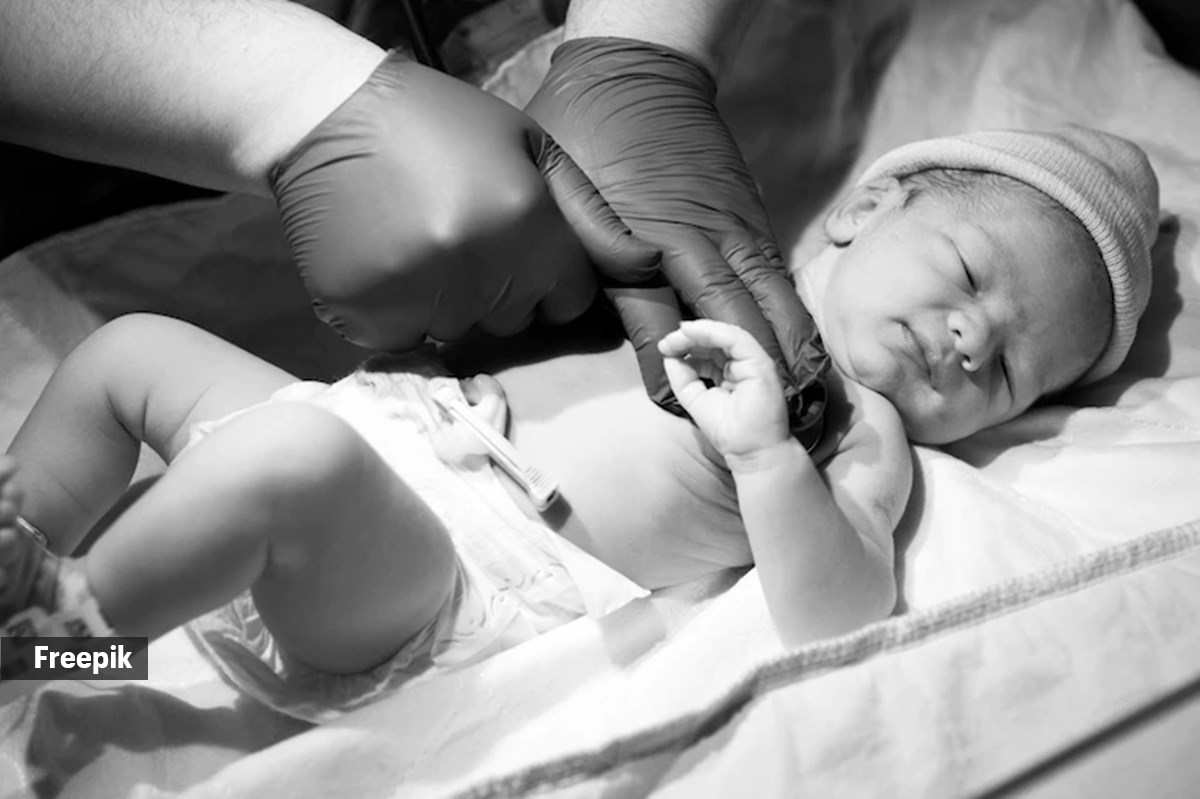New research indicates possible cause for sudden infant death syndrome
The study published on May 25 in the Journal of Neuropathology and Experimental Neurology, attributes a specific chemical receptor in the brain as a contributory factor to SIDS.
 Sudden infant death syndrome (SIDs) has been a constant source of despair among parents. (Source: Freepik)
Sudden infant death syndrome (SIDs) has been a constant source of despair among parents. (Source: Freepik)For new parents, their baby’s safety is of utmost importance. First priority and sometimes the only obsession for years, new parents are always on the lookout for their infant’s security. However, sudden infant death syndrome (SIDs) has been a constant source of despair among parents. With very little known about the phenomenon, a new study has attempted to explain it a bit further.
The study published on May 25 in the Journal of Neuropathology and Experimental Neurology, attributes a specific chemical receptor in the brain as a contributory factor to SIDS. The chemical receptor, Serotonin 2A/C, is allegedly partly responsible for causing infants to suddenly die in their sleep.
According to the study, infants use this receptor to respond to oxygen deprivation. The Serotonin 2A/C receptor helps infants wake up and gasp for air in these situations. However, abnormalities in the receptor hinders this process, and infants undergo sudden deaths in their sleep from lack of oxygen. Researchers of the study reached this conclusion after autopsying brain cells of babies who had died of SIDs and observing them against babies who had died of other causes.
Moreover, another study explains that a fault or an abnormality in the Serotonin 2A/C receptors can be genetic and hereditary. It was revealed in the study that siblings of infants who had died of SIDS had a fourfold higher potential to undergo death by the same cause as compared to average.
Dr Kanchan S Channawar, Senior Pediatrician & Pediatric Intensivist at Kamineni Hospitals, Hyderabad, however, said that it is challenging and difficult to detect such predisposition in infants beforehand. “Although certain genetic variations are potential risk factors, there is no definitive genetic test. Genetic counseling and discussing the family’s medical history can offer some insights,” she added.
 Since death is caused during sleep, many believe that sleeping patterns and sleeping environments of the infants can be leading causes. (Source: Freepik)
Since death is caused during sleep, many believe that sleeping patterns and sleeping environments of the infants can be leading causes. (Source: Freepik)
A report by the Boston Children’s Hospital on SIDS states that it occurs in children below one year of age. However, it further says that despite investigation into the death and clinical history of the infants who died of it, SIDS cannot yet completely be explained. It also talks about how SIDS is the leading cause of post-neonatal babies in the US, but studies have shown that in India, it is an unlikely cause of infant mortality.
Since death is caused during sleep, many believe that sleeping patterns and sleeping environments of the infants can be leading causes. Also known as crib deaths, this occurrence was also related to parenting practices by a study published in the British Medical Journal. The study notes that Western babies are more likely to suffer SIDS than Asian babies as the former are more frequently left alone than the latter, especially while sleeping. The research observed that touch, noise, and rocking help babies stabilise their breathing. Since these factors are associated with people near the infants, babies who sleep alone are deprived of these external sensory stimulations.
Dr Channawar said that SIDS is a complex ailment but there can be several preventative measures that can taken. “These include practicing safe sleep practices by placing infants on their back to sleep in a crib or bassinet with a firm mattress and without soft bedding, pillows or stuffed animals. Creating an appropriate sleep environment, maintaining a comfortable temperature and ensuring a smoke-free area are important. Breastfeeding, regular prenatal care, following the recommended immunization schedule and using pacifiers during sleep have also been associated with a decreased risk of SIDS.”
For all the latest Parenting News, download Indian Express App.
- 01
- 02
- 03
- 04
- 05































